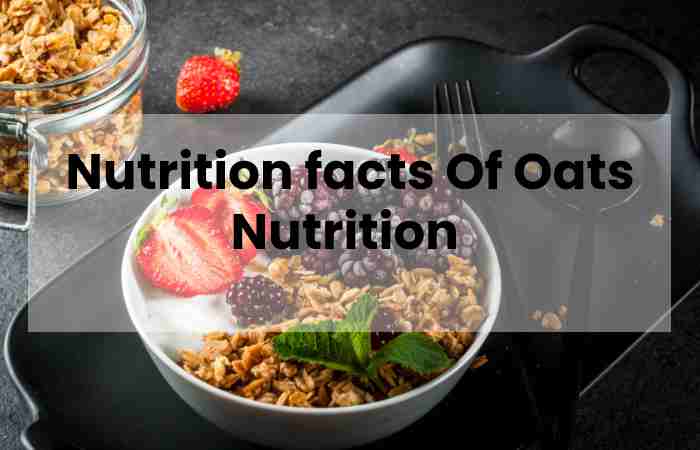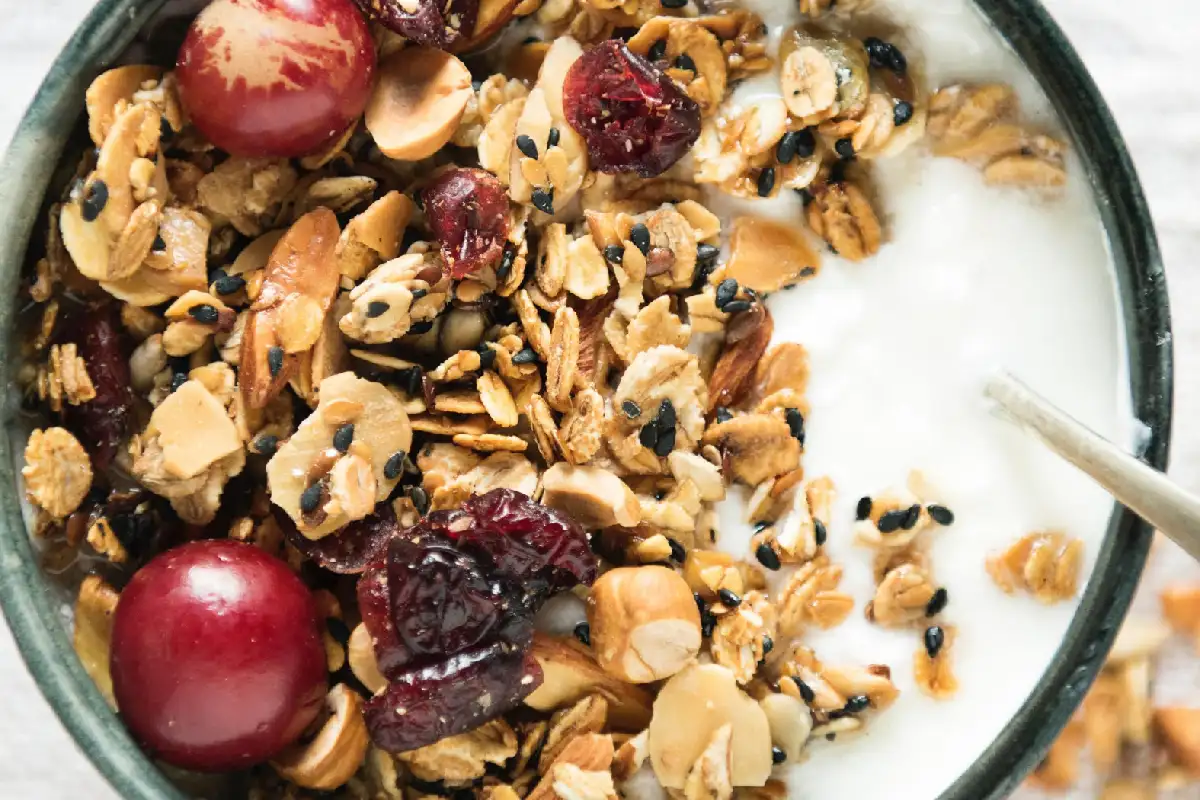Oats Nutrition – Oats (Avena sativa) is a whole grain cereal grown in North America and Europe. They are an excellent source of fiber, especially beta-glucan, and are high in vitamins, minerals, and antioxidants.
Whole oats are the only food basis of avenanthramides, a unique group of antioxidants believed to protect against heart disease. Due to their several benefits, such as lowering blood sugar and cholesterol levels, oats have gained considerable attention as a health food.
Whole-grain oats are called oat groats. They’re most commonly moved or crushed and can be spent as oatmeal (porridge) or used in baked goods, bread, muesli, and granola. They remain most commonly rolled or crushed into flat flakes and casually toasted to produce oatmeal.
Quick, or direct, oatmeal remains made up of thinly rolled or cut oats that absorb water much more quickly and thus cook faster. The bran, or fiber-rich outer coating of the grain, is often consumed separately as a cereal, with muesli, or in bread. This article expresses to you everything you need to know about oats.
Table of Contents
Nutrition facts Of Oats Nutrition 
The nutrition facts for 3.5 grains (100 grams) of raw oats are:
- Calories: 389
- Water: 8%
- Carbs: 66.3 grams
- Fiber: 10.6 grams
- Fat: 6.9 grams
- Sugar: 0 grams
- Protein: 16.9 grams
Carbs
Oats have very little sugar, with only 1% pending from sucrose. Carbs make up 66% of oats by dry weight. Nearby 11% of the carbs remain fiber, while 85% are starch.
Starch
Starch, comprised of long chains of glucose molecules, is the most significant component of oats. The starch in oats is dissimilar to the starch in other grains. It has a higher fat content and viscosity, which is its ability to bind with water.
Three types of starches remain found in oats:
- Rapidly digested starch (7%) This kind is quickly broken down and absorbed as glucose.
- Slowly digested starch (22%) This form remained broken down and absorbed more slowly.
- Resistant starch (25%) Immune starch functions like fiber, escaping ingestion and improving gut health by eating your friendly gut bacteria.
Fiber
Whole oats pack almost 11% fiber, and oatmeal contains 1.7% fiber. The popular fiber in oats is soluble, mostly a thread called beta-glucan. Oats also provide insoluble fibers, counting lignin, cellulose, and hemicellulose.
Oats offer more soluble fiber than extra grains, leading to slower digestion, increased fullness, and appetite suppression. Soluble oat beta glucans remain unique among fibers, as they can form a gel-like solution at a relatively low attentiveness. Beta-glucan comprises 2.3–8.5% of raw, whole oats, primarily concentrated in the oat bran.
Oat beta glucans lower cholesterol levels and increase bile acid production. Daily consumption of beta-glucans has remained shown to lower cholesterol, especially LDL (bad) cholesterol, and may thus reduction your risk of heart disease. They remain also believed to reduce blood sugar and insulin levels after a carb-rich meal.
Protein
Oats are a decent source of quality protein at 11–17% of dry weight, higher than most other grains. The primary protein in oats — at 80% of the total gratified — is avenalin, which isn’t found in any other grain but is similar to legume proteins. The minor protein avenin remains related to wheat gluten. However, pure oats are carefully safe for most people with gluten intolerance.
Vitamins And Minerals of Oats Nutrition
Oats are high in various vitamins and minerals, including:
Manganese: Also, Typically found in high quantities in whole grains, this trace mineral is essential for development, growth, and metabolism.
Phosphorus: This mineral is essential for bone health and tissue maintenance.
Copper: An antioxidant mineral frequently lacking in the Western diet, copper is essential for heart health.
Vitamin B1: Also recognized as thiamine, this vitamin remains found in many foods, including grains, beans, nuts, and meat.
Iron remains essential in the human diet as a component of hemoglobin. Also, A protein responsible for transporting oxygen in the blood.
Selenium: This antioxidant is essential for various processes in your body. Low selenium levels remain associated with an improved risk of premature death and impaired immune and mental function.
Magnesium: Also, Often missing in the diet, this mineral is essential for numerous processes in your body.
Zinc: This mineral contributes to many chemical reactions in your body and is essential for overall health.
Conclusion:
Although, Oatmeal is a nutritious snack that offers numerous health benefits when eaten daily. Also, It is good to eat oatmeal every day, considering its nutritional profile and health benefits, including weight control and heart-healthy effect.

